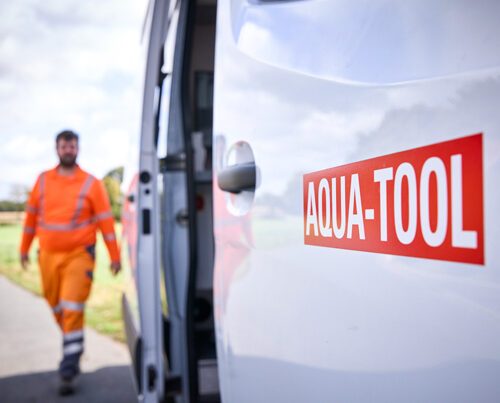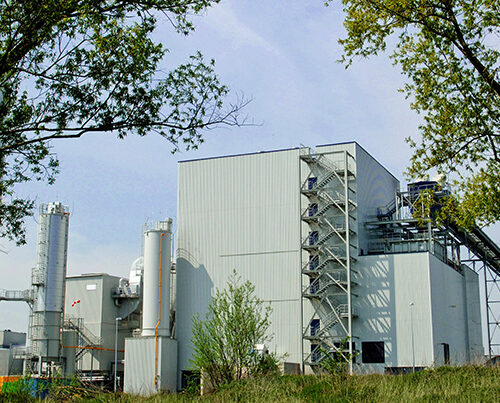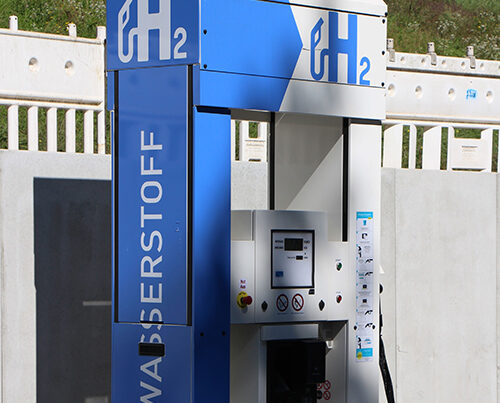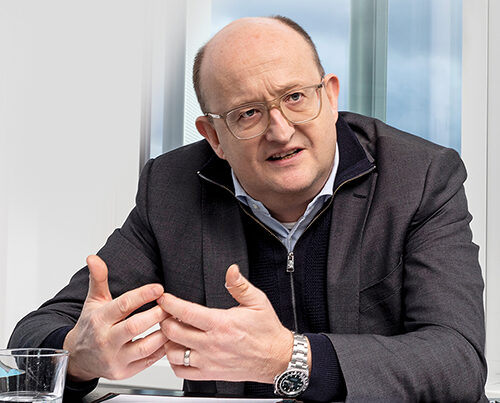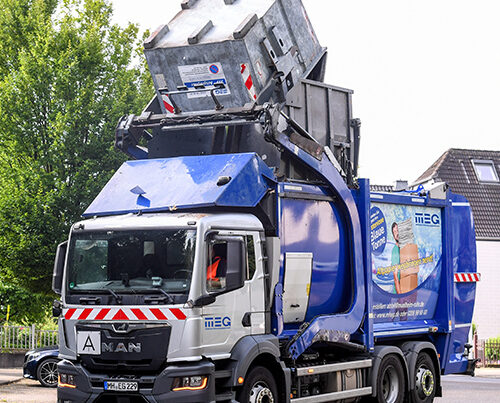Industry pioneers
REMONDIS’ subsidiary FES, a firm based in Frankfurt, recently tested the ‘Futuricum’ fully electric refuse collection truck – the first company in the industry to trial such a vehicle. The practical tests went well. An evaluation of its efficiency and performance is currently being carried out.

Tests attracted much attention
The three-day trial attracted wide interest. The company that had developed the truck, Designwerk Products AG from the Swiss town of Winterthur, first presented the vehicle to the head of the City of Frankfurt’s environment office, Rosemarie Heilig, the managing director of REMONDIS Südwest, Siegfried Rehberger, and the FES managing directors, Benjamin Scheffler and Dirk Remmert. Siegfried Rehberger, who had initially contacted the Swiss firm, explained, “Being Germany’s biggest recycling business, REMONDIS wants to take on a pioneering role as we look for ways to move forward into a post fossil fuel era. It is important that all possible options are tested, even those where the results are still unsure.”
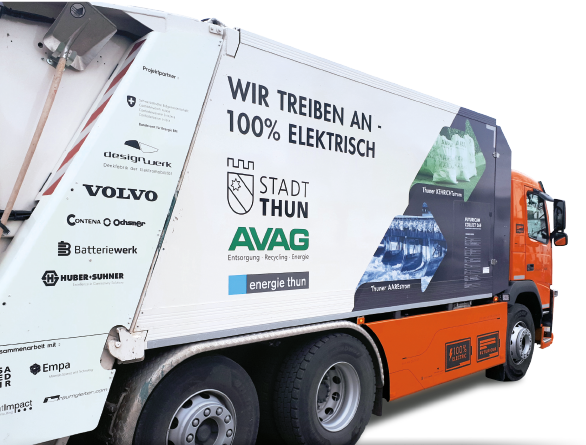
The Futuricum test vehicle, which is already being used in Switzerland (e.g. in the City of Thun), may soon be on Frankfurt’s roads boasting FES’ corporate design
Waste collections with practically no emissions
With its four electric motors (total of 680 PS), the new all-electric ‘Futuricum’ refuse vehicle should enable waste to be collected more quietly and with practically no emissions. What’s more, it was specially developed to be driven in large cities so that it can deal with the challenges caused by the narrow streets and built-up areas. This trial primarily focused on the truck’s ability to cope with the constant stopping and starting, typical of a standard waste collection route. On a normal day, an FES truck is expected to pick up 800 to 900 tonnes of residual waste within 8½ hours. These tests did not factor in a break at midday for the batteries to be recharged; the truck was not plugged into the rapid charger unit until it had returned to its base in the evening.
The e-motors are run on lithium-ion batteries and have a capacity of between 170 and 340 kWh depending on the situation. The energy produced when the driver brakes is captured so it can be reused.
There are currently only two other companies offering all-electric waste collection trucks besides this Swiss manufacturer. At the moment, there are four ‘Futuricum’ vehicles, all of which are being used in Switzerland and have already successfully clocked up tens of thousands of kilometres.
“Being Germany’s biggest recycling business, REMONDIS wants to take on a pioneering role as we look for ways to move forward into a post fossil fuel era.”
Siegfried Rehberger, Managing Director of REMONDIS Südwest
Key to improving urban air quality
Rosemarie Heilig, head of the City of Frankfurt’s environment office and chairperson of the FES supervisory board, took part in the occasion to make it clear just how important it is to her to find clean technology to drive down air pollution in the city: “We’re constantly talking about how we can improve air quality in our towns and how we might deal with a possible ban on vehicles entering the city. It is, therefore, really important for the city authorities and FES to be spearheading the movement to find pioneering, low emission technology for our vehicles. All forms of public transport will play a key role here as will the trucks needed to empty our city’s bins.”
The important question of the purchase price
However, it will not just be the test results that will determine whether there will be a fleet of Futuricum trucks on Frankfurt’s roads in the future. At the moment, the purchase price is approximately twice that of a standard diesel-run waste collection vehicle. According to the manufacturer’s calculations, the initial cost is amortised after eight years. This figure, however, includes a special tax benefit on electric lorries that is available in Switzerland but – as yet – not in Germany. Having said that, though, the price could fall. Designwerk has moved to a new site this year so it can begin a series production of this vehicle. FES managing director, Dirk Remmert, was keen to point out that FES has, in fact, been using e-mobility since 2009. The company is currently trialling a prototype of a hybrid waste collection vehicle that runs on a combination of natural gas and electricity. Moreover, FES’ fleet also includes five electric-assisted bikes, five Segways, 14 electric cars and two electric utility vehicles.
Image credits: images 1–2: © REMONDIS







